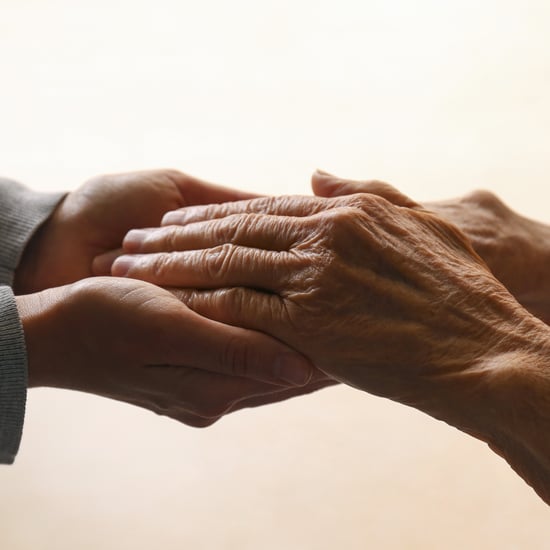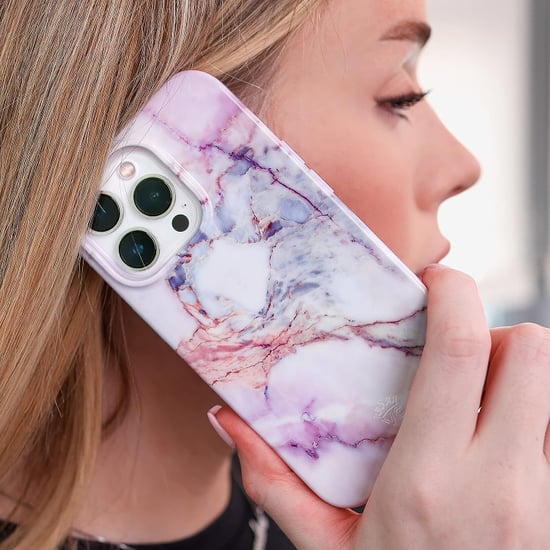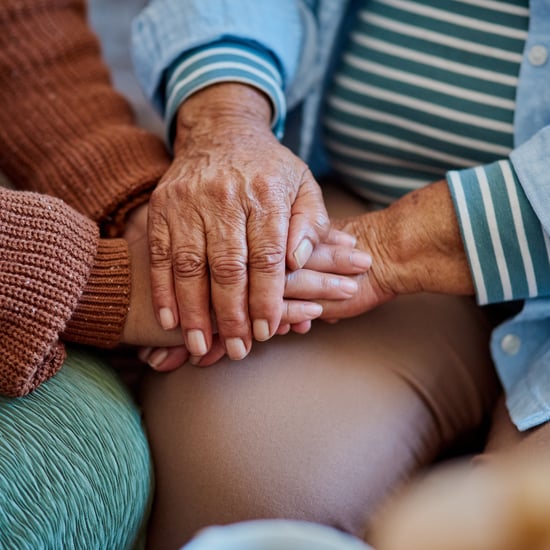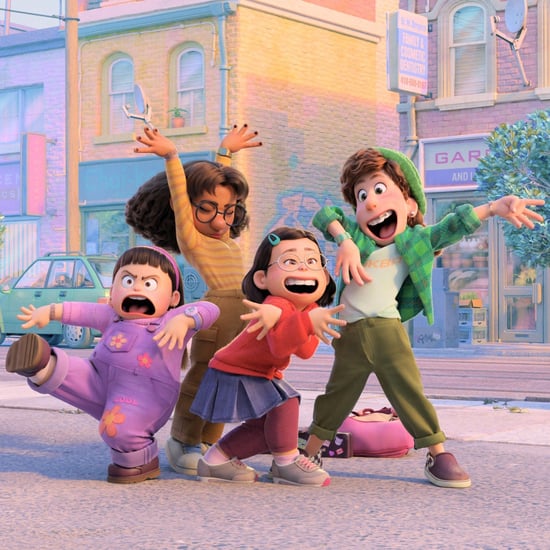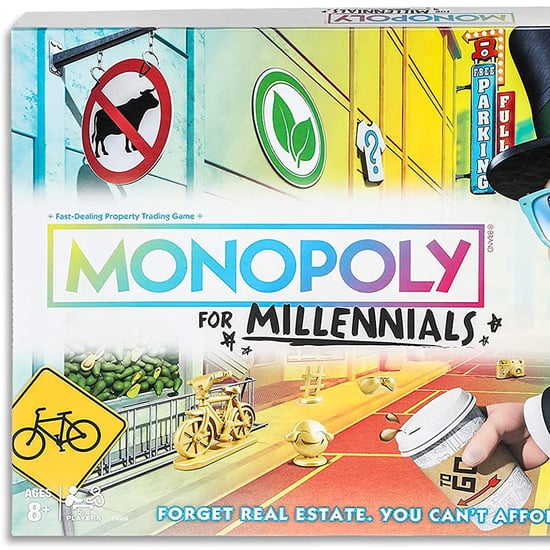
Why Are Millennials Entitled?
Everyone Thinks Millennials Are Entitled — Even Millennials
Entitled. It's a word that gets batted around a lot by pundits and experts and bosses when the subject of millennials comes up. But a new study conducted by POPSUGAR Insights shows that "entitled" is widely how people 16-36 describe their own generation, too. In fact, when we asked the survey respondents what three words they thought best describe millennials, "entitled" was the most common word suggested by those born between 1980 and 2000.
As editors (and millennials ourselves), we were surprised — even a little stumped — by these results. Were these millennials blaming their peers for being entitled while considering themselves above the pale? Or had they heard this characterization about themselves so often and relentlessly that they'd internalized it as the truth, like some kind of weird Stockholm syndrome? Or is it that, maybe, millennials are reclaiming the word "entitled" in ways we didn't expect?
THE ENTITLED GENERATION
One person who was not floored by our survey findings was Dr. Jean Twenge, who wrote the books Generation Me and The Narcissism Epidemic. Twenge was careful to point out that we can't know whether other generations might have chosen "entitled" to describe themselves in a similar survey and that there isn't reliable data on entitlement specifically. But she has dedicated herself to studying narcissism — extreme, self-absorbed interest in oneself — among millennials.
"If we look at college students between the early 1980s (Boomers) into the '90s (Gen-Xers) and through millennials to about 2009, there was a steady increase in narcissistic personality traits," Twenge says. (Those traits include a lack of empathy, need for admiration, and sense of grandiosity.) "By their own description, not by anybody else's."

While narcissism is a decidedly negative trait, the Merriam-Webster definition of entitled is neither negative nor positive. It's simply "to give a right or claim" to something; there's no mention of whether entitlement refers to a right or claim that's somehow deserved or earned. Still, there's no doubt that the current connotations around the word are overwhelmingly critical. In day-to-day conversation, we most frequently use entitled to describe a person who thinks they've got the right to something they haven't really worked for or earned. Entitled is frequently used in the same sentence as words like selfish, spoiled, privileged, and inexperienced.

Even when millennials are in the driver's seat when it comes to portraying themselves in pop culture, they've often chosen to paint themselves with an entitled or narcissistic brush. Hannah Horvath, the lead character portrayed by Girls creator and writer Lena Dunham (born in 1986), is a prime example.
When Hannah lands a job at GQ, she immediately takes egregious advantage of the free snacks. When the publisher of her book unexpectedly dies, she uses his funeral to accost his widow about who will take over her project. When her parents decide to stop paying her rent two years after she graduates college, she is stunned. It does not seem a coincidence that Dunham wrote this line of dialogue for Hannah in the very first episode of the HBO series: "I think that I may be the voice of my generation."
Is it fair to compare the narcissism of millennials to previous generations, given that the millennial generation has come of age amid the rise of selfies and social media? Twenge thinks so. "The increase of narcissism started long before social media was on the scene," Twenge says. "It can't be the only cause. It may not even be the primary cause. Not to mention, we don't have proof that social media causes narcissism per se. We know that there is some evidence it may cause a self-esteem boost. But directly causing narcissism? I don't know if there is anything to measure for that."
HOW MILLENNIALS HAVE REDEFINED ENTITLEMENT
We decided to reach out to the millennials in our study who described their generation as entitled to get more insight as to what they meant — and how they view the word. Many hold the standard critical view of their own generation: "The problem with my generation is that everyone thinks they're special," explains Marysia Klopotowski, who was born in 1982 and lives in New York state. "While it's true that we're all different and have the right to be heard and respected," Klopotowski admits, she thinks the "everyone is special" attitude "completely democratizes the playing field not by merit." Carolyn Atkins, born in 1991 and living in South Carolina, takes an even harsher tone. When asked why she thinks millennials are considered entitled, she says: "Because there are too many unqualified idiots going to college and then expecting to be set for life with no further effort."
In addition to these criticisms, however, more than one in 10 of those who described millennials as entitled, and who answered a follow-up survey, said they viewed the word as "neutral." In their comments, many suggested their perception of entitled might be different than what might be assumed. Instead of viewing entitlement as a sense that the universe owes you something you may not have earned, many view entitlement as the right to go after big goals and aim high — without asking for permission from gatekeepers and authority figures.
Noreen Sumara, who was born in 1988 and lives in Alberta, Canada, sums up the discrepancy in how we define entitled. "If I work hard for something, I could be entitled to a reward. But sometimes entitled is used when someone is just handed something because of who they think they are."
ENTITLEMENT VS. EARNING IT: MILLENNIALS AT WORK
This attitude, no wonder, spills over into the workplace. Studies show that millennials are more likely than other generations to expect to find their dream job after college or to become a manager by age 30. A 2016 Gallup study also found that millennial workers demand opportunities for personal growth from their employees. "One of the most consistent criticisms aimed at millennials is that they haven't 'earned' their right to receive development opportunities," Gallup explains. The study recap goes on to warn: "Managers need to recognize that millennials don't feel entitled; they feel empowered. They want to expand their knowledge and skills, they want to be useful, and they want their work and workplace to have meaning to them." Gallup explains that millennials bring the on-demand attitude of the internet to the workplace, in a positive and productive way: "In millennials' eyes, development shouldn't only come through tenure. Millennials want managers to find ways to invest in their futures, hone their skills and coach them to become the best workers they can be — starting today."
It turns out entitlement pays. Consider this 1985 study, titled Overworked and underpaid: On the nature of gender differences in personal entitlement. In the study, women typically had lower feelings of personal entitlement than the male participants. Thus, when asked how much to pay themselves for a specific assignment, women tended to choose an amount less than the men, who performed worse than the women on the same assignment but felt they deserved more money. The study highlighted how a lack of entitlement could explain the gender pay gap. By increasing their levels of personal entitlement, millennials might finally help close it.
POPSUGAR reader Sumara admits that while some millennials might not have to work as hard as their parents or less-privileged people around the world, many "feel like we have worked hard and are entitled to a good life." And is that so wrong? Perhaps millennials are victims of "generational hazing," i.e. older generations think they must endure the same perceived hardships as those before them, in order for society to deem them worthy of success — or even worthy of striving toward it.
Michelle Huttenhoff, born in 1989 and living in Florida, has thought a lot about why millennials — along with the word entitled — get a bad rap. She took our POPSUGAR survey and tells us: "I think people perceive millennials as entitled because we are choosing jobs that fulfill us not just financially but emotionally, because we choose places to live that are vibrant and inclusive, and don't want to just 'donate to charity' but be actively involved in grass-roots, innovative change." When a younger generation questions the accepted way of doing things, it may be accused of asking for too much.
Another study from Boston College found that some of the perceived differences might come down to values. When surveying millennials' career goals, research found that 82 percent wanted to take on increasingly challenging tasks, 77 percent wanted to be known as an expert in a particular area, and 74 percent wanted to advance up the management ladder. But only 20 percent wanted to advance if it meant spending less time with their families or on their personal lives. In addition, hardly any participants disagreed with this statement: "I tend to make career choices based on my values and interests rather than the choices provided by my employer." The study had this recommendation: "it would seem that helping young employees find congruence between their values and those of the company is important."
Megan Tan, host of the Millennial podcast, is one of those who questions our society's whole popular perception of "entitlement." She suggests millennials who use the word entitled to describe themselves are unlikely to see it as a bad thing. Tan thinks it's simply representative of a shift in power.
"There definitely are not a lot of gatekeepers anymore. The generation after us, they're going to embody this even more so," Tan says. "You don't need to go through a company in order to do the thing that you want in life anymore. I don't think that's entitlement; I think that's just a shift in the times and young people recognizing that and being able to take action."
HOW TECHNOLOGY SPARKED THE MILLENNIAL ENTITLEMENT TO INFORMATION

That shift is something Scott Hess, who studies millennials for the agency Mediavest|Spark, has seen firsthand. He says constant internet connectivity makes millennials, especially younger millennials, more skeptical of authority. For people born in the 1990s, the internet was not just a novelty but a utility, according to Hess. As the internet evolved, so did the relationship toward traditional guardians of information. During the '90s, the internet became not "just this cool thing that only certain people have access to and might get to see at a cybercafe or something," Hess says, but "something every single person has in their dorm room." That leads to people fact-checking authority figures.
Hess explains: "Instead of your parents or your professor being the only way you could get the answer to a question about school or about sexuality, for example, you have personal access to factual information, you have pictures, video." Information no longer comes from the top down.
Millennials are aware of this, too: "I think technology has made things so easy," explains POPSUGAR survey taker Lauren Douglass, who was born in 1986 and lives in California. "People have come to expect everything to be as fast and as easy as pulling up information on your iPhone." You can watch a movie on demand on your couch, whereas older generations had to go to a theater or rental store. You can receive breaking news alerts, while older generations had to wait for the morning paper or evening news reports.
That expectation for fast results — and rewards — might explain why millennials get labeled as entitled, especially when a millennial's expectations don't match reality. Think: expecting a promotion after a short period of work.
The relationship with technology is stronger for younger millennials. In our survey of millennials, we found that respondents born in the 1990s were more likely to describe themselves as "connected to tech" than those born in the 1980s. "The second half of the generation had information freely available," Hess explains. They can't imagine trusting one newspaper film critic vs. an aggregating tool like Rotten Tomatoes, the local restaurant reviewer vs. the millions of reviews at their fingertips on Yelp, or a trade magazine vs. Amazon reviews from consumers and enthusiasts like them. Older millennials are fluent in the new tools, but they can at least remember a time before them. You can imagine how these differences would lead to differences in behavior at work, for example. The '80s kids, who are now 27 to 36, might be more deferential to their managers than their 26-and-under co-workers.
The attitudes toward authority could also explain the "entitled" label. With the internet at their fingertips, millennials of all ages could feel entitled to practically anything — an answer, a movie, a meal — on demand. The question of whether they've earned it? Maybe it's just irrelevant.
*Of the survey's 2,150 respondents, 89% of respondents were female and 72% identified as white/Caucasian, 11% as Latino, 11% as Asian-American, and 7% as African-American.
— Wordcloud Produced by Julie Driscoll and Leighton Kountz.

